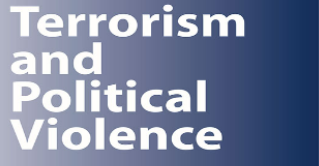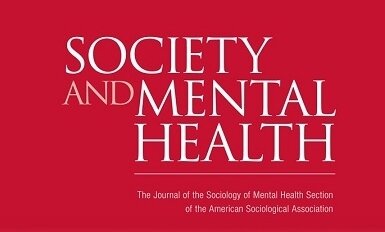Publications
Rethinking medicalization: Unequal relations, hegemonic medicalization, and the medicalizing dividend (with Dagoberto Cortez)
Theory & Society
Medicalization is an important theory that has been subject to numerous debates. Drawing on three varied datasets, we forward a novel relational approach to medicalization that responds to critiques while aiming to reinvigorate the theory with new concepts and questions. In contrast to prior process-based work, we take a relational approach and argue that medicalization is best understood as an action or activity undertaken by specific groups or actors. We further suggest that medicalization is characterized by unequal relations. Specifically, we argue that 1) groups or actors receive a benefit from participating in medicalization, which we call the medicalizing dividend and, 2) an actor/group occupies a hegemonic position in medicalizing relations, reaping the largest dividend and constraining other actors. While we assert that pharmaceutical companies are currently hegemonic, we argue that their hegemony is not indefinite. We discuss how our approach facilitates links between medicalization and other theories, while outlining future steps for medicalization research.
When Help is Harm: Health, lookism and self-improvement in the manosphere (with Meghan Gosse, Katharine Yeo, Ingrid Handlovsky, and Finlay Maguire)
Sociology of Health & Illness
How do online communities impact men’s health? How does hegemonic masculinity harm men’s health? In this paper, we analyze Looksmax.org, an online community that receives 6 million unique visitors per month and is aimed at men seeking to improve their appearance. We qualitatively analyzed 8,072 discussion board comments posted to Looksmax.org. Our findings first demonstrate how users apply a hegemonic masculine gaze as they critique men’s bodies (e.g., facial asymmetries, brow ridges). Second, we show how the community encourages men to substantially alter their bodies (e.g., with leg lengthening surgeries or by mewing). Third, we argue that the community subjects users to masculine demoralization, wherein they are seen as failed men and encouraged to self-harm. Drawing on masculinities theory, we argue that looksmaxxing and similar self-improvement communities harm the health of the men who participate in them.
Stochastic gender-based violence: How incels justify and encourage sexualized violence against women (with Meghan Gosse and Finlay Maguire)
Violence Against Women
This study examines how involuntarily celibate (“incels”) men justify gender-based and sexualized violence against women. Based on an analysis of 22,060 discussion board comments, we argue that: (1) incel justifications of sexualized violence are tied to their perception of gender relations, (2) incels justify sexual assault as a form of revenge for their incel status, and (3) incels misuse science to argue that women enjoy sexual assault. Adapting the concept of “stochastic terrorism,” we argue that incels and similar communities produce stochastic gender-based violence, wherein communities justify and encourage acts of violence. Findings are discussed in relation to gender-based violence, rape culture, masculinities theory, and policy.
“I’ve never been so stressed in my life”: A qualitative analysis of young adults’ lived experience amidst pandemic restrictions in Prince Edward Island, Canada (with Gemma Postill, Claire Zanin, and Caroline Ritter).
BMJ Open
Objectives: This qualitative study aimed to explore how young adults experienced the COVID-19
pandemic in relation to extensive lockdowns, social isolation, and psychosocial distress.
Specifically, this research focused on how the pandemic impacted those who did not contract
COVID-19 and lived in a low-risk geographical location. The focus was young adults given they
have large social circles (high-risk for disease transmission) and have an increased propensity to
mental health conditions. These insights can inform planning for future pandemics.
Design: This paper draws on 30 in-depth semi-structured interviews. Data were analyzed
inductively following the principles of a constructivist grounded theory approach.
Setting and Participants: Thirty young adults living in Prince Edward Island during the COVID-
19 pandemic, a Canadian province with a low number of COVID-19 cases at the time of data
collection.
Results: We developed four themes that describe the experience of young adults during the
COVID-19 pandemic: 1) life course disruption, 2) fear and anxiety about the COVID-19 virus, 3)
isolation and loss of hope, and 4) strategies for managing adversity. Our findings highlight the
areas of young adults’ lives that were affected by extensive social changes related to the COVID-
19 pandemic. We demonstrate that even individuals who had not contracted the virus were
considerably impacted.
Conclusion: We provide a detailed description of the comprehensive impact of COVID-19 on
low-risk young adults not previously infected with the COVID-19 virus. By reflecting on the
biographical disruption experienced by young adults, we highlight the need and opportunity to
direct healthcare resources toward identifying and addressing the secondary impacts of pandemics.
Consequently, these findings can guide decisions relating to future pandemic restrictions to better
account for the experiences of individuals living through them.
The emergence of the incel community as a misogyny-motivated terrorist threat (with Demeter Lockyer and Finlay Maguire)
Terrorism and Political Violence
The incel (involuntary celibate) community is characterized by misogynistic beliefs surrounding women and a fatalistic outlook on society. Incels have committed, or have attempted to commit, several acts of mass violence globally, which suggests they are an emerging terror threat. In this study, we discuss how incels position their violence as ideological terrorism, how this violence is tied to misogyny despite incels’ additional targeting of non-women, and finally, the extent to which incels are, or at least claim to be, anti-violence or otherwise non-violent. To do this, we inductively analysed over 1000 comments from a popular incel forum, Incels.is, detailing how incels discuss three mass-murderers associated with the incel community: Elliot Rodger, Alek Minassian, and Jake Davison. Through revealing the ways incels discuss these three men, we conclude that incels view their own violence as terrorism with ideological aims, thus qualifying the community as a terrorist threat.
A soldier and a victim: Masculinity, violence, and incels celebration of December 6th (with Kayla Preston, Demeter Lockyer, and Finlay Maguire)
Canadian Review of Sociology
In 1989, Marc Lépine murdered 14 women at L’École Polytechnique de Montréal. We demonstrate how involuntarily celibate (“incel”) men celebrate Lépine and claim him as a member of their community. Our analysis draws on 637 comments made on incels.is, the main English-language incel forum, that explicitly mentions Marc Lépine. We argue that incels use Lépine to situate themselves in relation to masculinity and to justify violence against women. First, incels orient to both hegemonic and subordinate masculinity by arguing that feminists are waging a gender war against men. Second, incels celebrate Lépine as a methodical and efficient murderer, connecting both themselves and Lépine to hegemonic masculinity. Third, incels describe both themselves and Lépine as victims of feminists and use this perceived subordination to justify violence against women. We discuss findings in relation to theories of masculinity and policies regulating online communities.
Men who hate women: The misogyny of involuntarily celibate men (with Norann Richard, Kayla Preston, Meghan Gosse, and Finlay Maguire)
New Media & Society
This paper uses computational data and social science theories to analyze the misogynistic discourse of the involuntary celibate (“incel”) community. We analyzed every comment (N=3,686,110) produced over 42 months on a popular incel discussion board and found that nearly all active participants use misogynistic terms. Participants used misogynistic terms nearly one million times and at a rate 2.4 times greater than their use of neutral terms for women. The majority of participants’ use of misogynistic terms does not increase or decrease with post frequency, suggesting that members arrive (rather than become) misogynistic. We discuss these findings in relation to theories of intersectionality, masculinity, and sexism. We likewise discuss potential policies for mitigating incel misogyny and similar online discourse.
Weaponized subordination: How incels discredit themselves to degrade women
Gender & Society
Invited contributions based on this paper appear in both the Gender & Society Blog and Gender & Society Podcast:
This paper analyzes weaponized subordination, wherein men strategically use their perceived subordinate masculine status to legitimate their degradation of women. The paper draws on a qualitative analysis of 9,062 comments made on a popular involuntary celibate (“incel”) discussion board. Incels are an online community of men who define themselves by their inability to participate in heterosexual sex/relationships. Incel forums are characterized by self-loathing, anger, and misogyny, with several incels having committed murders (e.g., Elliot Rodger). I first detail the type of subordination incels argue they experience, a social bias in favor of attractive people they call lookism. Next, I explain how incels perceive themselves as permanently subordinated “failed men.” I then demonstrate how incels weaponize their subordination, using their perceived subordinate status to justify their misogyny. Findings are discussed in relation to hybrid masculinity and conceptualizations of subordinate masculinities.
Between two pandemics: Older, gay men's experiences across HIV/AIDS and COVID-19 (with Ingrid Handlovsky, Tessa Wonsiak, Anthony Amato, Oliver Ferlatte, and Hannah Kia)
Social Science & Medicine - Qualitative Research in Health
Pandemics are a component of human life, and have had great bearing on the trajectory of human evolution. Historically, the biomedical aspects of pandemics have been overrepresented, but there is growing recognition of the degree to which pandemics are socially and culturally embedded, highlighting how virus perception is socially and politically informed. Older (50+), gay men represent a population who have experienced two global pandemics in their lifespans: HIV/AIDS and COVID-19. Although governments and health officials largely failed gay men during the HIV/AIDS pandemic, gay men represent an important source of pandemic information and their experiences have much to offer health professionals and policymakers. As such, a small but growing body of literature has compared gay men's experiences amidst the two pandemics. The current study drew on constructivist grounded theory methods to examine how living through the HIV/AIDS pandemic has influenced older gay men's perspectives of COVID-19. Twenty Canadian-based gay men aged 50+ participated in semi-structured interviews via Zoom. Analysis revealed three key processes: (1) uncertainty and the familiarity of loss, (2) witnessing pandemic inequities, and, (3) navigating constantly evolving (mis)information. We highlight the utility of this knowledge to informing future pandemic planning and policies.
Countervailing medicalization: A relational approach to the medicalization of psychosis
Social Science & Medicine - Qualitative Research in Health
This paper provides a relational analysis of the medicalization of prodromal psychosis, a period of low-level symptoms that might or might not escalate into an official psychotic disorder (e.g., schizophrenia). Data consists of 30 in-depth interviews with the complete staff of two prodromal psychosis programs. While both programs medicalize psychosis, they do so in markedly different ways. One program applies extensive community surveillance but does not provide treatment, whereas the other program treats individuals before they develop an official disorder but does not conduct community surveillance. To explain this difference, I conduct a relational analysis of medicalization, arguing that medicalization efforts in one domain (e.g., surveillance) can constrain medicalization in other domains (e.g., treatment), which I refer to as countervailing medicalization. The paper discusses the implications of countervailing medicalization for medicalization theory and the utility of relational approaches for medicalization analyses.
Adherence of those at low risk of disease to public health measures during the COVID-19 pandemic: A qualitative study (with Gemma Postill, Cindy Adams, Claire Zanin and Caroline Ritter)
PLOS ONE
Public health measures (PHMs) proactively and reactively reduce the spread of disease. While these measures target individual behaviour, they require broad adherence to be effective. Consequently, the World Health Organization issued a special appeal to young adults, a known non-adherent population, for increased adherence with COVID-19 guidelines. However, little is known about why these low-risk individuals do or do not adhere to PHMs. This study investigates why young adults in a low-risk setting adhered to PHMs implemented during the COVID-19 pandemic. A qualitative research approach was chosen to gain an in-depth understanding of participants’ thoughts and experiences related to PHM adherence. Semi-structured interviews were conducted in April-May 2021 with 30 young adults living in Prince Edward Island (PEI), the province with the lowest COVID-19 case rate in Canada at that time. Thematic analysis was used to create a codebook based on the Theoretical Domains Framework, which was then inductively modified. The analysis identified eight themes that explained the adherence of young adults: (1) clear, purpose-driven adherence rationale, (2) developing trust in the local leadership, (3) adapting to novel measures, (4) manageable disruption, (5) adhering to reduce anxiety, (6) collective duty towards one’s community, (7) moral culpability and (8) using caution rather than compliance. Together, these themes demonstrate that young adults adhered to PHMs because of their sense of connection to their community, public health leadership, and concerns over stigma. We further argue that clear guidelines and communication from public health officials during both periods of high and low COVID-19 cases facilitate adherence. These findings are important for mitigating future public health emergencies as they explain why young adults, an important segment of the population whose adherence is critical to the success of PHMs, follow PHMs. Further, these findings can inform public health officials and other stakeholders aiming to develop successful adherence strategies.
The brain and causality: How the brain becomes an individual-level cause of illness
Social Problems
How do individual-level explanations become applied to social issues? Neurobiology – the study of the connections between behavior and the cells and structures of the brain – receives substantial public funding and influences social institutions, policy debates, and core aspects of human experience. With respect to mental health, neurobiology has ramifications for how disorders are defined, diagnosed, and treated, along with how public funding for mental illness is allocated. This paper addresses how neurobiologists establish the brain as a cause of mental illness. Specifically, I analyze 17 months of ethnographic observation at a well-regarded neurobiological research laboratory, as well as observations at professional meetings, to detail three strategies: Linking the Brain to Mental Illness, Explaining Mental Illness with the Brain, and Asserting the Causal Importance of the Brain. These strategies first connect the brain to mental illness, and subsequently establish the causal primacy of the brain relative to alternative explanations (e.g., poverty). I connect findings to medical sociological theories, biological reduction, and emerging national health policies.
The black pill: New technology and the male supremacy of involuntarily celibate men (with Kayla Preston and Finlay Maguire)
Men and Masculinities
Involuntary celibates, or “incels,” are people who identify themselves by their inability to establish sexual partnerships. In this paper, we use analytic abduction to qualitatively analyze 9062 comments on a popular incel forum for heterosexual men that is characterized by extensive misogyny. Incels argue that emerging technologies reveal and compound the gender practices that produce involuntarily celibate men. First, incels argue that women’s use of dating apps accelerates hypergamy. Second, incels suggest that highly desirable men use dating apps to partner with multiple women. Third, incels assert that subordinate men inflate women’s egos and their “sexual marketplace value” through social media platforms. We argue that incels’ focus on technology reinforces essentialist views on gender, buttresses male domination, dehumanizes women, and minimizes incels’ own misogyny. We discuss findings in relation to theories of masculinity and social scientific research on the impacts of emerging technology.
An invitation to analytic abduction (with Norann Richard)
Methods in Psychology
This paper provides an invitation to analytic abduction, an emerging approach to qualitative research. Like deduction and induction, abduction is a mode of inquiry. In a general sense, abduction forwards explanations for novel or surprising observations. In a more practical sense, abduction aims to combine the strengths of both inductive and deductive inquiry by reasoning from concrete data (similar to induction), but using this data to extend, refine, or refute existing theories or propositions (similar to deduction). In this paper, we provide an overview of how and why abduction was developed for qualitative research before demonstrating how to apply analytic abduction to real-world data. Our examples connect data to longstanding and well-researched theories in psychology to highlight the utility of abduction for psychological researchers. We argue that analytic abduction is an ideal resource for qualitative psychologists, as the approach emphasizes qualitative data while leveraging such data to shape theory. This focus on theory provides ample opportunities to use qualitative work to inform concepts central to psychological science, including those that are primarily tied to experimental design, quantitative methods, and deductive reasoning.
Into the prodrome: Diagnosis, disadvantage, and biomedical ambiguity
Society and Mental Health
Within the field of neuroscience, a new illness stage called the “prodrome” is being characterized. The prodrome is a symptomatic period that precedes an official diagnosis. Huntington Disease (HD) is a neuropsychiatric disorder that has an extensively researched prodrome marked by psychiatric and cognitive symptoms. This paper provides a sociological investigation of the prodrome by analyzing 24 interviews with individuals with HD and 14 interviews with informal caregivers. I find that substantial disadvantages accompany the prodromal phase of HD, with the prodrome connected to; 1) inability to access healthcare, 2) inability to access health resources, 3) the depletion of personal resources, and 4) caregiver burden. Documentation of such disadvantages is important as prodromal phases are connected to a growing number of conditions. Study findings are discussed in relation medicalization, as well as the tension between medical ambiguity and the organization of health institutions.
Uncertainty and certain death: The role of clinical trials in terminal cancer care (with Dagoberto Cortez)
Sociology of Health & Illness
We consider uncertainty in relation to clinical trials for terminal non-small cell lung cancer, which is an aggressive and difficult to treat form of cancer. Using grounded theory to analyze 85 clinical interactions between doctors, patients, and family members. We argue that uncertainty is a major source of tension for terminally-ill patients, with individuals confronting a choice between transitioning to palliative care or volunteering for an experimental/trial medication that might postpone death. Regardless of the trial’s efficacy, patients must also consider how such experimental treatments might impact their quality-of-life. We contend that clinical trials produce uncertainty through 1) discussions about the efficacy of clinical trials; 2) the physiological consequences of clinical trial medications; and, 3) the impact clinical trials have on patient’s prognostic understanding of their terminal cancer. Accordingly, while study participants encounter high prognostic certainty (i.e., they have fatal cancer), they nonetheless experience considerable uncertainty in relation to their participation in clinical trials.
Science and suffering: Genetics and the lived experience of illness
Social Problems
With more than 10,000 conditions connected to pathological genes, genetic science has the potential to substantively impact illness experience. Building on medical sociological and science studies literatures, my study analyzes how genetic discourses and technologies shape the lived-experience of Huntington Disease (HD). Analysis draws on in-depth interviews with 24 individuals with the HD mutation and 14 caregivers (e.g., spouses). Study findings detail how genetic discourses and illness experiences intersect to produce “genetic suffering,” a participant- derived concept describing a novel modality of suffering. Genetic suffering is detailed in relation to four themes: 1) Guilt, responsibility and genetic inheritance, 2) Chance, uncertainty and genetic testing, 3) Ambiguity and genetic onset, and 4) Fatalism and genetic prognosis. After describing the intersections between the science of genetics and suffering in HD families, I discuss the implications of study findings for debates on genetic responsibility and consider the unintended consequences of genetic technologies.
The DSM and professional practice: Research, clinical and institutional perspectives
Journal of Health and Social Behavior
How mental illnesses are defined has significant ramifications, given the substantial social and individual repercussions of these conditions. Using actor–network theory, I analyze how mental health professionals use the Diagnostic and Statistical Manual of Mental Disorders (DSM) in their work. Drawing on observations of a neuropsychological laboratory and interviews with 27 professionals (i.e., psychiatrists, psychologists), I investigate how the DSM is used in research, clinical, and institutional work. In research, the DSM influences study design and exclusion/inclusion criteria. In the clinic, the DSM influences how disorders are conceptualized and diagnosed. Institutionally, the DSM aligns the patient–professional encounter to insurance and pharmaceutical interests. I conclude that the DSM operates as multiple, context-specific taxonomies that pervasively influence professional practices, such that all possible actions must orient to DSM criteria, with professionals both a source and an object of institutionalized gaze.
Diagnosis, psychiatry and neurology: The case of Huntington Disease
Social Science & Medicine
Although Huntington Disease (HD) is recognized as a neurological condition, it has a number of psychiatric effects, with recent studies suggesting that these effects can appear years prior to the telltale neurological symptoms. This trajectory has, in part, led to the misdiagnosis of HD as a psychiatric illness, as explicated in numerous case studies. This paper utilizes HD as a case study to investigate the social consequences of diagnosis by highlighting the tensions and ambiguities between neurology and psychiatry, while also discussing the difficulties that HD creates for psychiatry’s diagnostic schema. Findings are based on 30 in-depth interviews conducted with both individuals with HD and informal caregivers (e.g., spouses) in British Columbia, Canada. The findings address numerous instances of misdiagnosis and the resulting negative impacts for individual health and well-being. The findings are further discussed in relation to the work of Bakhtin and Latour, with suggestions presented to ameliorate such misdiagnoses.
Accounts of suicidality in the Huntington Disease community
Journal of Death and Dying
Health professionals, researchers, and philosophers have debated extensively about suicide. Some believe suicides result from mental pathology, whereas others argue that individuals are capable of rational suicide. This debate is particularly poignant within illness communities, where individuals may be suffering from chronic and incurable conditions. This article engages with these issues by presenting the accounts of 20 individuals with Huntington disease (HD), a fatal degenerative condition, and 10 informal caregivers (e.g., spouses). Suicide is a leading cause of death amongst people with HD, with an incidence rate many times higher than the general population. In contrast to the majority of the academic literature on HD suicidality, study participants did not connect suicide with mental pathology. Instead, they perceived suicide as a response to the realities of living with HD, such as prolonged physiological degeneration and the need for long-term intensive health care. These findings are subsequently discussed in relation to the rational-pathological suicide binary.
Structure and agency: Reflections from an exploratory study of Vancouver indoor sex workers (with Vicky Bungay, Chris Atchison and Caitlin Johnston)
Culture, Health and Sexuality
Sex work research continues to be characterised by debates around decriminalization. Central to these debates are claims about the agency of those involved in the sex trade. Some researchers argue that individuals involved in the sex trade are victims of structural and interpersonal constraint, whilst others depict them as workers exercising choice. Drawing on structure-agency theory, a review of legal and media accounts of the sex trade and qualitative interviews with 21 indoor sex workers in Vancouver, Canada, we argue that both of these perspectives are insufficient. Rather than reducing the sex trade to part of a binary, we suggest that it is necessary to analyse sex work through the complex interplay of both structure and agency. Specifically, structural analyses undercover the numerous ways that sex workers are controlled, observed and influenced whilst agency perspectives elicit the means that sex workers continue to exercise control in spite of disadvantage. While we do not finalise decriminalisation debates, we do critique current Canadian laws for the lack of responsiveness to the lives of sex workers and their exploitative and contradictory stance on sex work.
You can also find a version of this paper in Culture, Health and Sexuality: An introduction.
Prostate cancer stories in the Canadian print media: Representations of Iillness, sisease and masculinities (with Melanie Phillips and John Oliffe)
Sociology of Health & Illness
Despite the popularity of print media as an information source for men with prostate cancer, the representation of prostate cancer within this medium remains relatively understudied. This article details the findings from an analysis of prostate cancer articles published in two Canadian national newspapers, The Globe and Mail and the National Post, from January 2001 through to December 2006. The 817 prostate cancer articles published during this period were retrieved and reviewed using manifest and latent analyses. Three article categories, illness perspectives, medical perspectives and supplementary were identified in the manifest analysis. The latent analysis was guided by the connections between masculinities and prostate cancer in the newspapers’ stories. Findings indicated a low frequency of articles that substantively discussed prostate cancer and that the descriptive content reproduced hegemonic masculine ideals, such as competition and stoicism. The presentation of a truncated illness trajectory and privileging of the curative aspects of biomedicine also depicted medicalised male bodies. Any discussion on the negative effects of treatment or explicit references to marginalised forms of masculinity was conspicuously absent. These findings support how representations of prostate cancer in Canadian newspapers predominately replicate detrimental ideologies and perspectives of men's health.
Violence in the massage parlour industry: Experience of Canadian-born and immigrant women (with Vicky Bungay, Peter Halpin, Caitlin Johnston, and David Patrick)
Health Care for Women International
We examined and contrasted 129 Canadian-born and immigrant women's experiences of violence and associated structural and interpersonal factors within indoor commercial sex venues. The majority experienced at least one form of structural, interpersonal, or both types of violence, with the attempted removal of a condom during sexual services being cited most frequently. Canadian-born women reported more frequent violent assaults in the survey data. The women's qualitative narratives illustrated that perceptions of violence differed significantly among Canadian versus non-Canadian born women. Findings concerning racialization and gendered relations of power have important implications for prevention and interventions to support victims of abuse.
How prostate cancer support groups do and do not survive: A British Columbian perspective (with John Oliffe, Joan Bottorff, Greg Hislop, Michael McKenzie, and Lawerence Mroz)
American Journal of Men's Health
Many prostate cancer support groups (PCSGs) have formed in North America during the past decade, yet their operation or factors influencing sustainability are poorly understood. This article reports micro (intragroup), meso (intergroup), and macro (group/structure) analyses drawn from the fieldwork and participant observations conducted for an ethnographic study of PCSGs based in British Columbia, Canada. The findings indicate that effective group leadership is integral to group sustainability and the recruitment and retention of attendees. At the meso level, intergroup connections and communication were often informal; however, the primary purpose of all the PCSGs was to provide information and support to men and their families. Many PCSGs were uncertain how formal associations with cancer fund-raising societies would influence group effectiveness. Macro issues such as prostate cancer activism resided with individual group "champions" through activities coordinated by provincial and national PCSG organizations. However, activism did not guarantee group sustainability. The study findings reveal why some groups flourish while others appear untenable, and form the basis for discussion about how PCSG sustainability might be best achieved.
Women and prostate cancer support groups: The gender connect? (with Joan Bottoff, John Oliffe, Melanie Phillips, Graham McLean, and Lawerence Mroz)
Social Science & Medicine
There are more than 100 prostate cancer support groups (PCSGs) in Canada, most of which meet on a monthly basis—yet little attention has been paid to the role of women at these groups. As part of an ongoing ethnographic study of PCSGs, we examined women's motivations for attending the groups, their ways of functioning in PCSGs and the benefits they accrued. Participant observations conducted at 13 British Columbian-based PCSGs and individual interview data from 20 women who regularly attended PCSG meetings were analyzed. Although the groups did not overtly limit women's attendance, the women's decisions to attend and their participation at group meetings were subject to much self-reflection, uncertainty and tension. Motivations to access a PCSG included a desire to support their partners, develop understandings about the illness and disease, and to manage their own experience of prostate cancer. Our analyses revealed that women assume three roles in PCSGs: social facilitator, background supporter and cancer co-survivor. The women reported many interrelated benefits as a result of attending, including information, hope and reassurance, and connecting with other women in similar circumstances. The results from this study reveal how traditional feminine ideals, such as nurturing and caring for the men in their lives, facilitating social connections and the desire to share emotional experiences guided the behaviors. Based on the study findings, we suggest that efforts to support women's involvement in PCSGs are critical to enhancing the effectiveness of the groups for both men and women.
Connecting humor, health and masculinities at prostate cancer support groups (with John Oliffe, John Ogrodniczuk, Joan Bottorff, and Greg Hislop)
Psycho-Oncology
Objective: Many commentaries about men's health practices and masculinities indicate that men do not typically engage with self-health or acknowledge illness, let alone openly discuss their health concerns with other men. Prostate cancer support groups (PCSGs) appear to run contrary to such ideals, yet the factors that influence men's attendance and engagement at group meetings are poorly understood. As part of a larger PCSG study, we noticed that humor was central to many group interactions and this prompted us to examine the connections between humor, health, and masculinities.
Methods: A qualitative ethnographic design was used to direct fieldwork and conduct participant observations at the meetings of 16 PCSGs in British Columbia, Canada. Individual semi-structured interviews were completed with 54 men who attended PCSGs to better understand their perceptions about the use of humor at group meetings.
Results: Four themes, disarming stoicism, marking the boundaries, rekindling and reformulating men's sexuality, and when humor goes south were drawn from the analyses. Overall, humor was used to promote inclusiveness, mark the boundaries for providing and receiving mutual help, and develop masculine group norms around men's sexuality. Although there were many benefits to humor there were also some instances when well-intended banter caused discomfort for attendees.
Conclusions: The importance of group leadership was central to preserving the benefits of humor, and the specificities of how humor is used at PCSGs may provide direction for clinical practice and the design of future community-based men's health promotion programs.
Analyzing participant produced photographs from an ethnographic study of fatherhood and smoking (with John Oliffe, Joan Bottoff, and Mary Kelly)
Research in Nursing and Health
As part of an ongoing ethnographic study, we examined the photographs and narratives that new fathers produced to ascertain how they created social, psychological, and relational space for continued smoking. A four-part process for analyzing the photographs consisting of preview, review, cross-photo comparison, and theorizing revealed how visual data analyses can be used to develop insights into men's health behaviors and beliefs. There is ongoing epistemological debate and methodological uncertainty about how photographic data should be treated in health sciences research. By conducting formal layered analyses, researchers can expand and extend both what is said about, and interpreted through, photographs.
Contact:
Michael.Halpin@Dal.ca






















